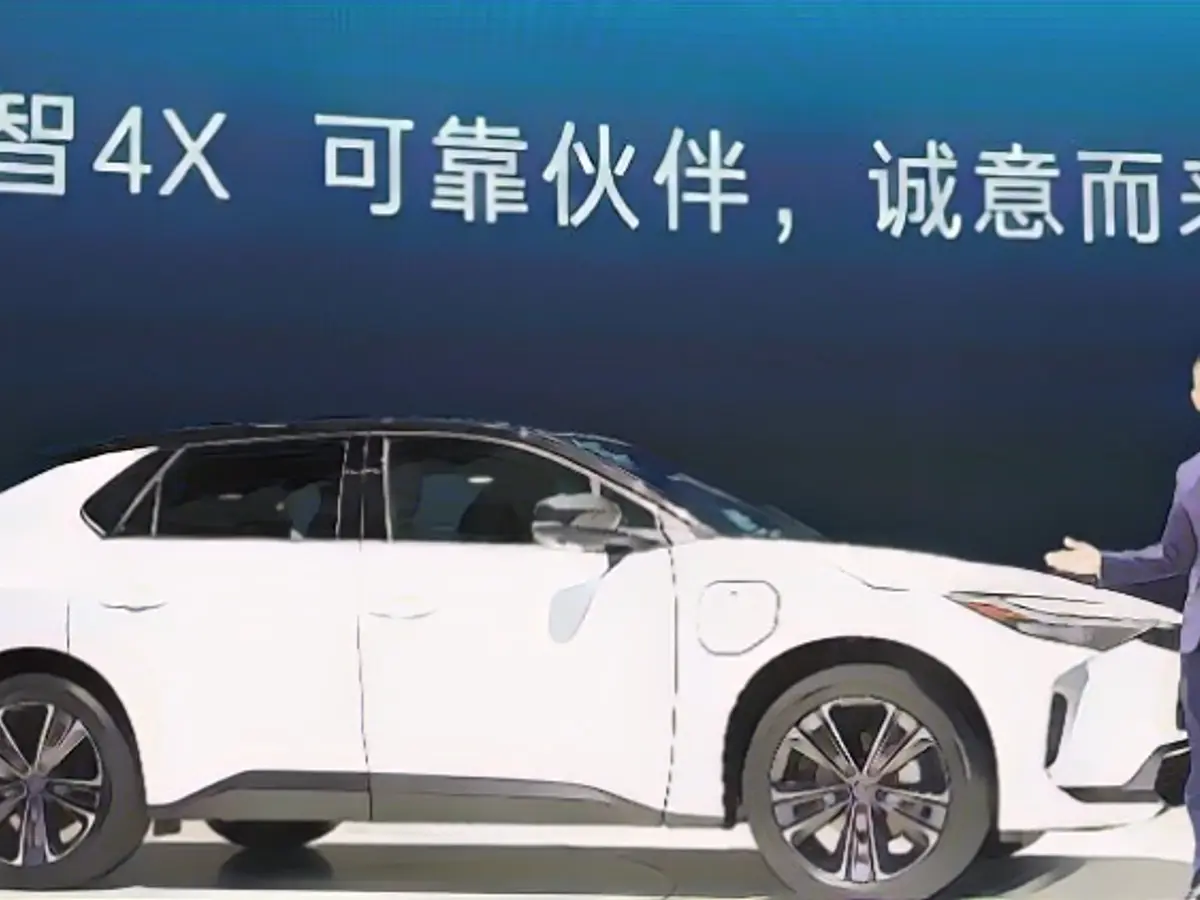Title: The Impact of Electric Car Subsidy Changes on Germany and China's Automotive Industries
The abrupt decision to end state subsidies for electric vehicles in Germany, as proposed by Economics Minister Robert Habeck, could potentially disadvantage the German automotive industry, particularly when compared to China's rapid expansion in the automotive sector, driven by its large customer base. This shift, according to industry expert Ferdinand Dudenhöffer, could benefit Chinese electric vehicle manufacturers.
An Uncertain Future for Germany's EV Market
The sudden withdrawal of state subsidies for electric vehicles, scheduled for the end of 2023, has created uncertainty and confusion among consumers and automakers, leading to a decline in sales. For instance, Germany's EV sales dropped by 18% in 2024 compared to the previous year. This change in policy is likely to impact Germany's competitiveness as an industrial hub, especially when confronted with China's expanding electric vehicle sector.
Repercussions for Germany's Automotive Companies
- Market Competitiveness: The absence of subsidies makes electric vehicles less competitive, which could further erode Germany's position in the global automotive market.
- Industry Uncertainty: The back-and-forth on state subsidies creates ongoing uncertainty among automakers, hindering long-term planning and investment.
- Consumer Behavior: Removal of subsidies influencing consumer behavior, leading potential buyers to opt for internal combustion engine vehicles or hybrid options instead of electric vehicles.
Opportunities for China's Automotive Industry
The competitive landscape in the global automotive market is influenced by various factors, including high energy costs and regulatory hurdles. The lack of clear incentives in Germany might not have a direct impact on Chinese automakers but could influence global market trends and competition. However, China's ongoing expansion in the automotive sector, driven by its significant customer base, puts it in a strong position to capitalize on any opportunities created by subsidy policy changes and global market dynamics.
A Shared Global Market Challenges
While the specific impact of Germany's subsidy policy on China's automotive industry might be indirect, both countries face similar challenges. Government support, technological advancements, and environmental regulations are crucial factors influencing electric vehicle companies' success. The lack of consistent government support in Germany might slow down the adoption of new technologies but could potentially give an advantage to Chinese automakers with more stable government backing.
Conclusion
The early termination of state subsidies for electric vehicles in Germany creates significant implications for the German automotive industry. The withdrawal of incentives could lead to reduced demand, decreased competitiveness, and ongoing uncertainty among manufacturers.
Meanwhile, China's automotive industry, driven by its significant customer base, is well-positioned to capitalize on opportunities created by global market dynamics and potential shifts in the competitive landscape. Both German and Chinese automakers face similar challenges, including regulatory changes and technological advancements, in their pursuit to remain competitive in the global market.








